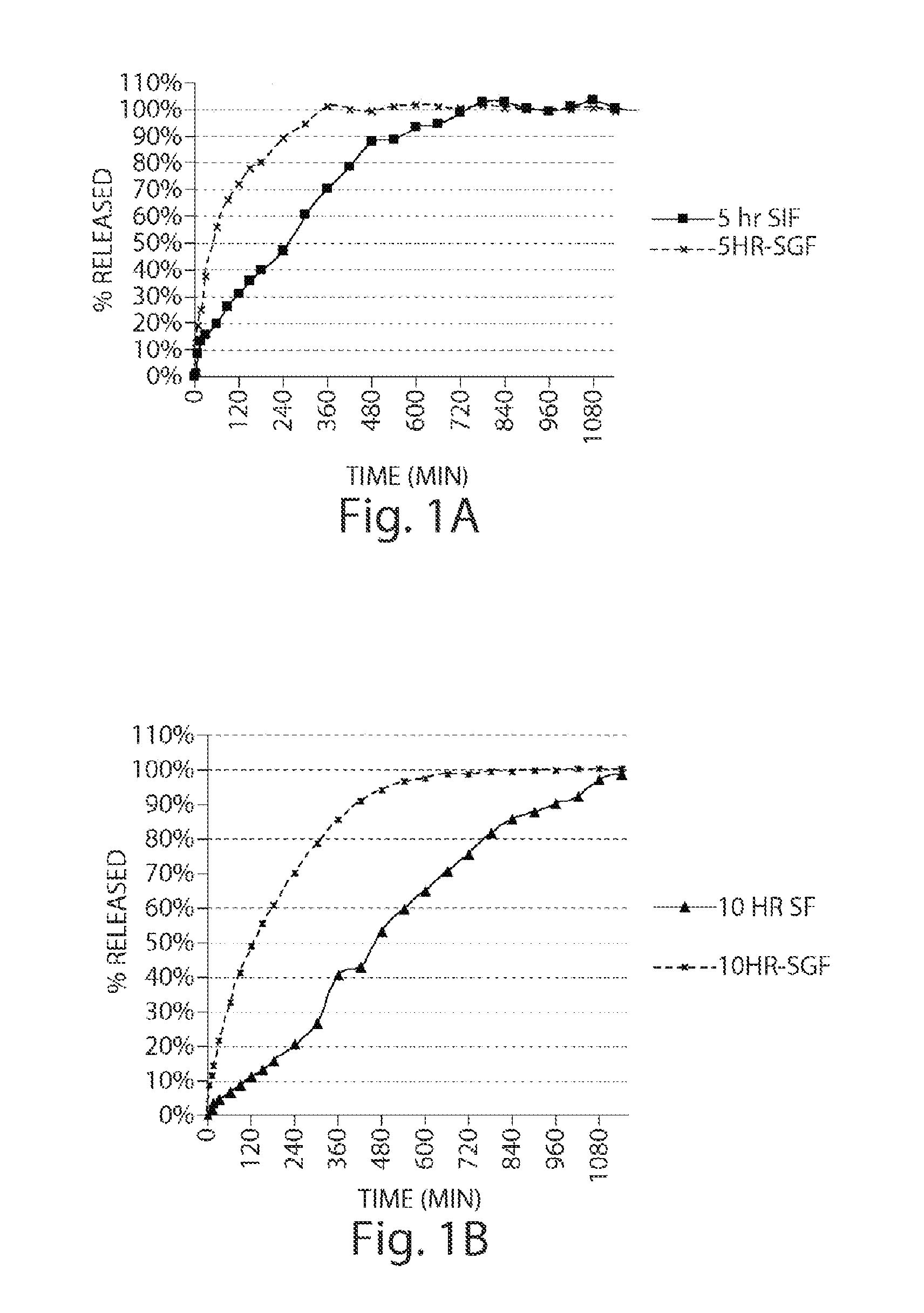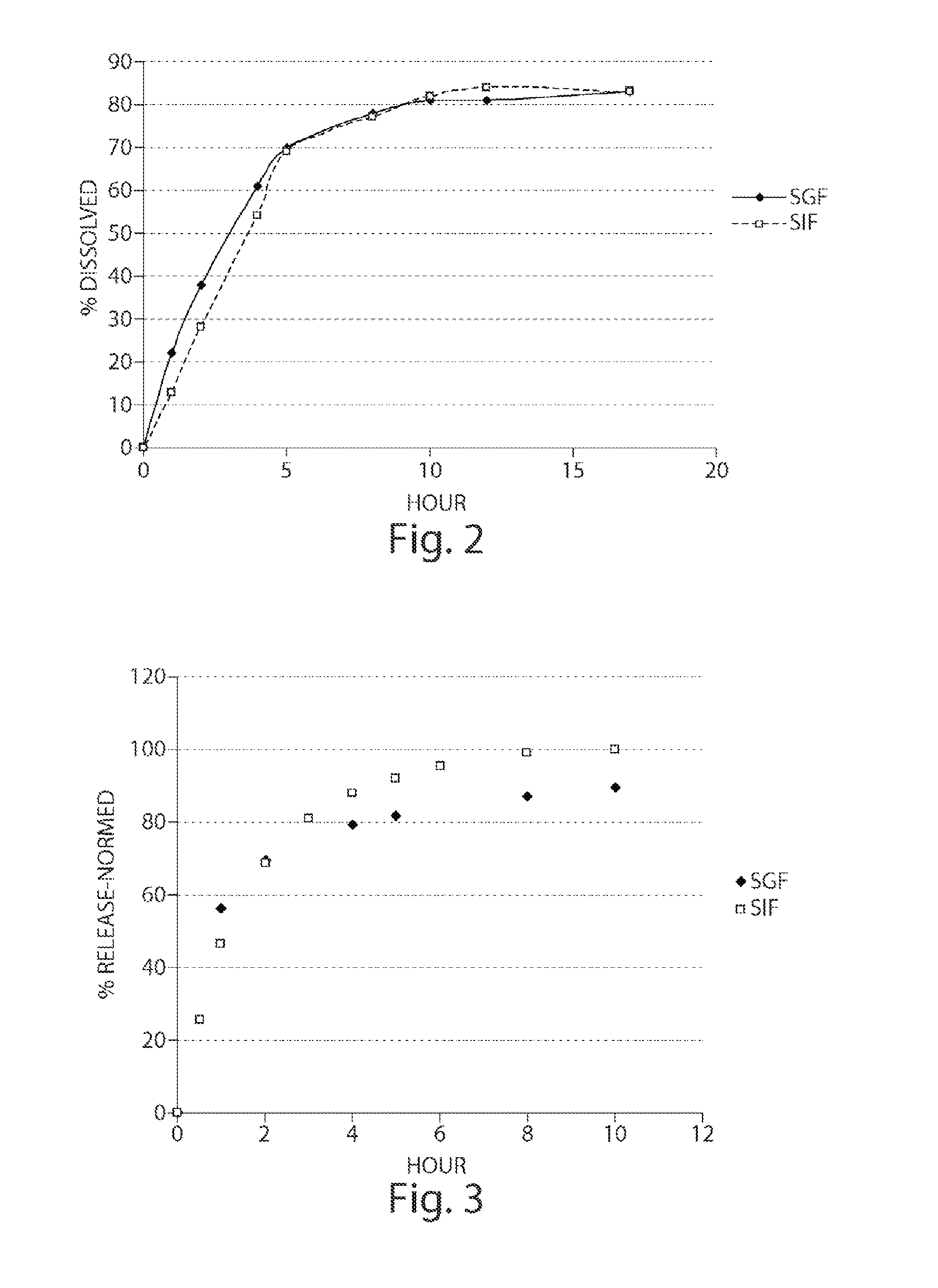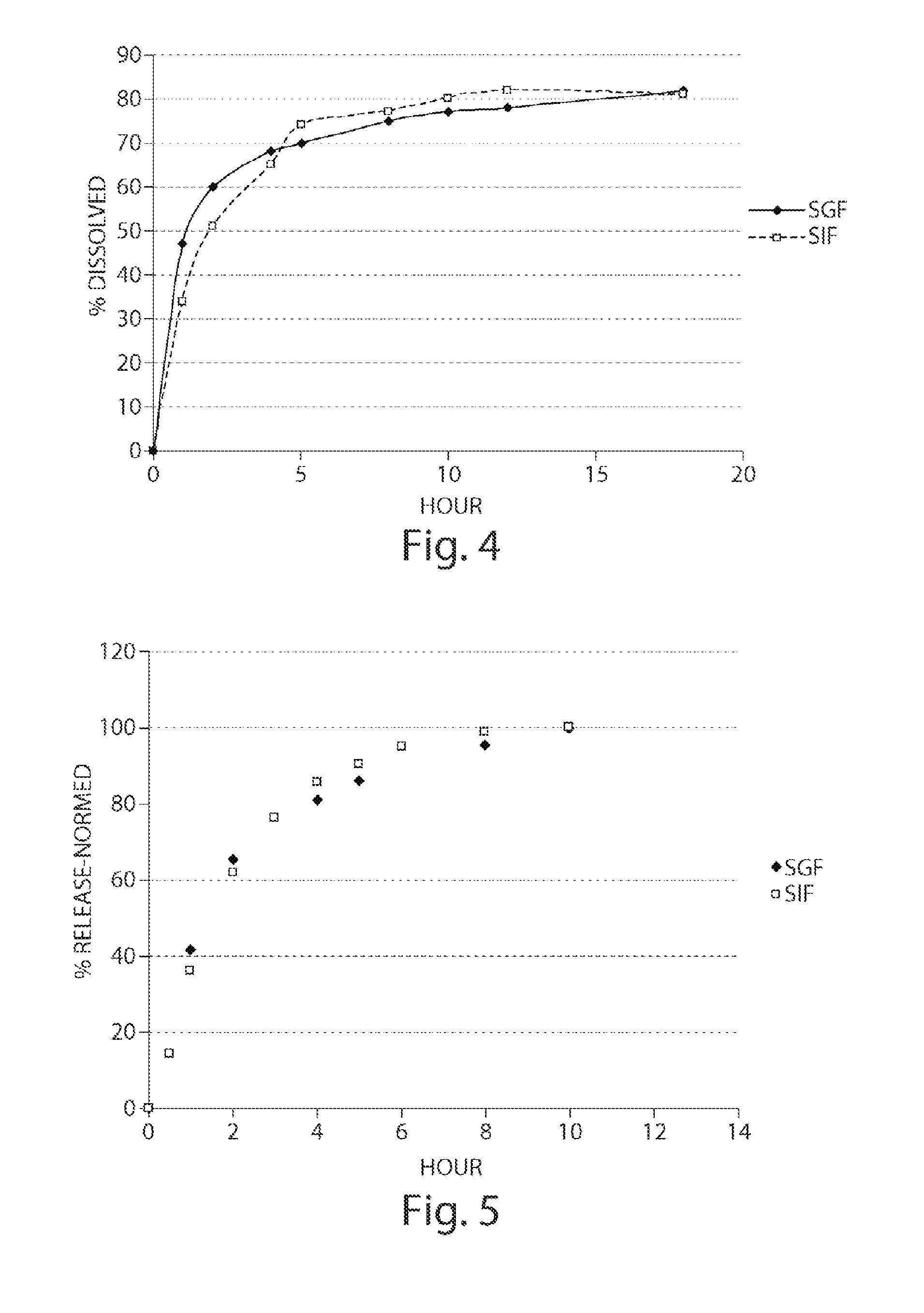Pharmaceutical compositions of metabotropic glutamate 5 receptor (MGLU5) antagonists
a technology of metabotropic glutamate and antagonists, which is applied in the direction of drug compositions, heterocyclic compound active ingredients, biocide, etc., can solve the problems of weak basic compounds, affecting the in vivo efficacy and safety of drugs, and many chemical entities are poorly water soluble and possess ph-dependent solubility
- Summary
- Abstract
- Description
- Claims
- Application Information
AI Technical Summary
Benefits of technology
Problems solved by technology
Method used
Image
Examples
example 1
Modified Release Tablet without pH Responding Polymer. [Comparative Example]
[0167]Weighed amount of 2-Chloro-4-[1-(4-fluoro-phenyl)-2,5-dimethyl-1H-imidazol-4-yl ethynyl]-pyridine and excipients (Pergelatinized starch 1500 for IR formulation; microcrystalline cellulose for Matrix tablet) were mixed in a 1:1 ratio and sieved through 1.0 mm screen. The procedure was repeated three times with portions of excipients, each time at a ration of 1:1. Finally, the rest of excipients were added and blended for another 5 minutes.
[0168]An Aeromatic fluid bed granulator MP1® was used for granulation. The described drug and excipients blend from the previous step were filled into the fluid bed granulator. The spray solution consists of Povidone K30® and water.
The following parameters were used:
[0169]Top-spray with a nozzle opening of 1.2 mm
[0170]Inlet air temperature 60-70° C.,
[0171]Spraying pressure 2.0-2.2 bar,
[0172]Spraying rate 40-45 g / min.
[0173]After drying, the granulate was discharged and ...
example 2
Preparation of Modified Release Tablet Containing a pH Responding Polymer
[0175]2-Chloro-4-[1-(4-fluoro-phenyl)-2,5-dimethyl-1H-imidazol-4-ylethynyl]-pyridine (15.6 g) and lactose monohydrate (878 g) were blended in a Turbula® blender at 40 rpm for 30 minutes. The contents of the blender were passed through a Fitz-mill® Screen #3 with Knife forward speed of ˜2500 rpm. The milled material was transferred to a VG-25 high shear granulator and mixed with Methocel, K100 LV® (600 g), Eudragit L100-55® (720 g), and PVP (120 g), at a speed of 250 rpm (screw) and 1500 rpm (chopper) for two minutes. After two minutes mixing, water was added at a spray rate of 50 g / minute until a consistent granulation was obtained. At the end of granulation, the wet granules were passed through Co-mill® at slow speed of 10 HZ with screen size of Q312R and then transferred to Vector FLM1® fluid bed for drying at 60° C. and an air volume of 60 CFM for 2 hours. The dried granules were milled again using Fitz-mill...
example 3
Preparation of a Modified Release Matrix Pellet Containing a pH Responding Polymer, MCC and Sodium CMC Mixture (F3)
[0176]Step 1: A preblended weighed amount of Avicell RC591® (˜173 g) and Eudragit L100-55® (75 g) were blended in a Turbula® blender at 46 rpm for 5 minutes. Step 2: 2-Chloro-4-[1-(4-fluoro-phenyl)-2,5-dimethyl-1H-imidazol-4-ylethynyl]-pyridine powder (1.6 g) and the polymer blend from Step 1 were mixed in a 1:1 ratio at 46 rpm for 5 minutes. Step 2 was repeated four times with portions of the polymer blend from Step 1. The resulting blend was sieved through 1.0 mm screen, and the screen was rinsed with the remaining polymer blend from Step 1 and blended for another 5 minutes. The blended material was transferred into a Dyazna® vertical high shear granulator. All of the components were mixed for three minutes at a speed of 350 rpm (screw) and 1350 rpm (chopper). After blending for three minutes, the powder mixture was granulated by spraying purified water at 16 g / minute...
PUM
| Property | Measurement | Unit |
|---|---|---|
| particle size | aaaaa | aaaaa |
| size | aaaaa | aaaaa |
| particle size | aaaaa | aaaaa |
Abstract
Description
Claims
Application Information
 Login to View More
Login to View More - R&D
- Intellectual Property
- Life Sciences
- Materials
- Tech Scout
- Unparalleled Data Quality
- Higher Quality Content
- 60% Fewer Hallucinations
Browse by: Latest US Patents, China's latest patents, Technical Efficacy Thesaurus, Application Domain, Technology Topic, Popular Technical Reports.
© 2025 PatSnap. All rights reserved.Legal|Privacy policy|Modern Slavery Act Transparency Statement|Sitemap|About US| Contact US: help@patsnap.com



